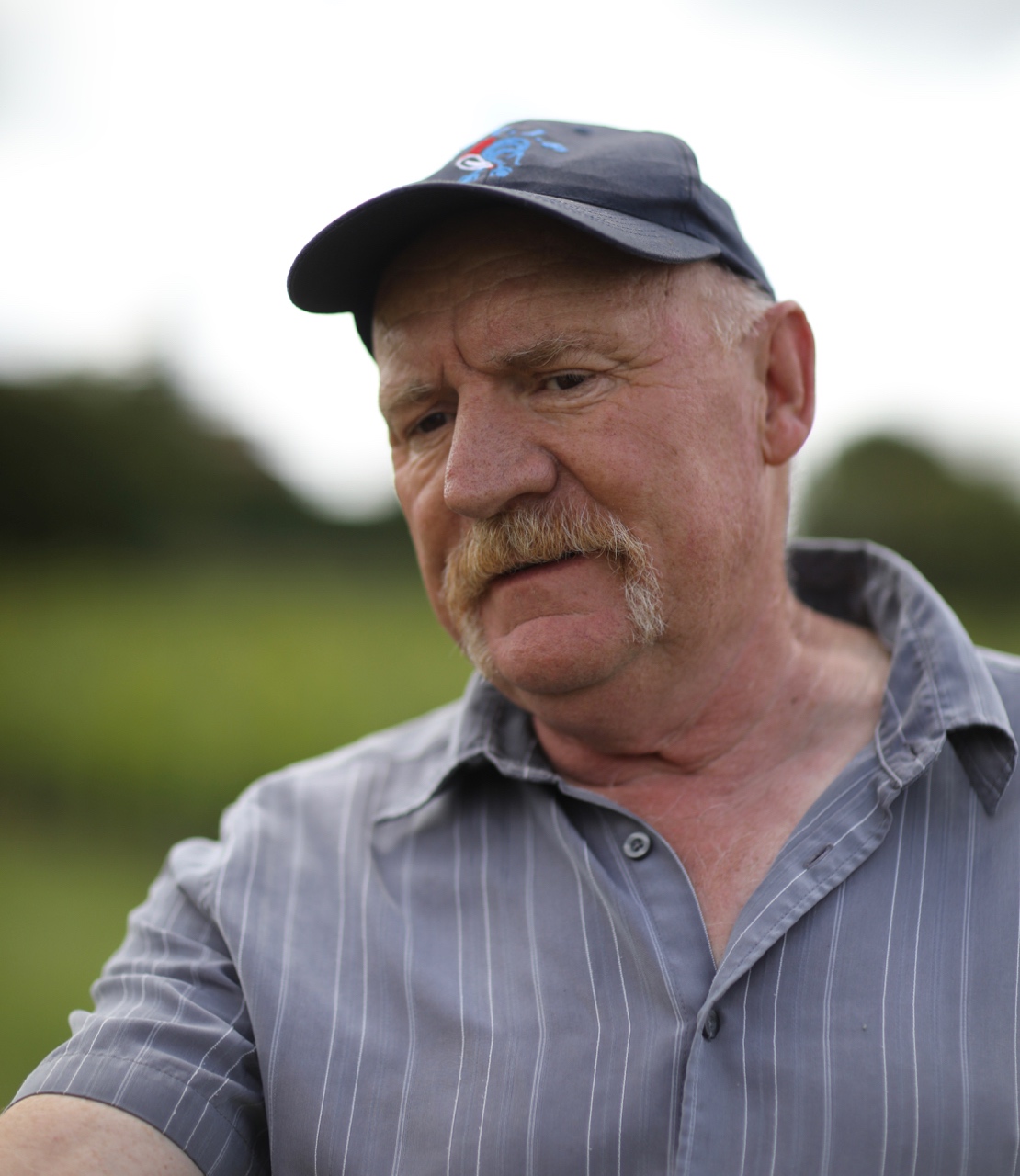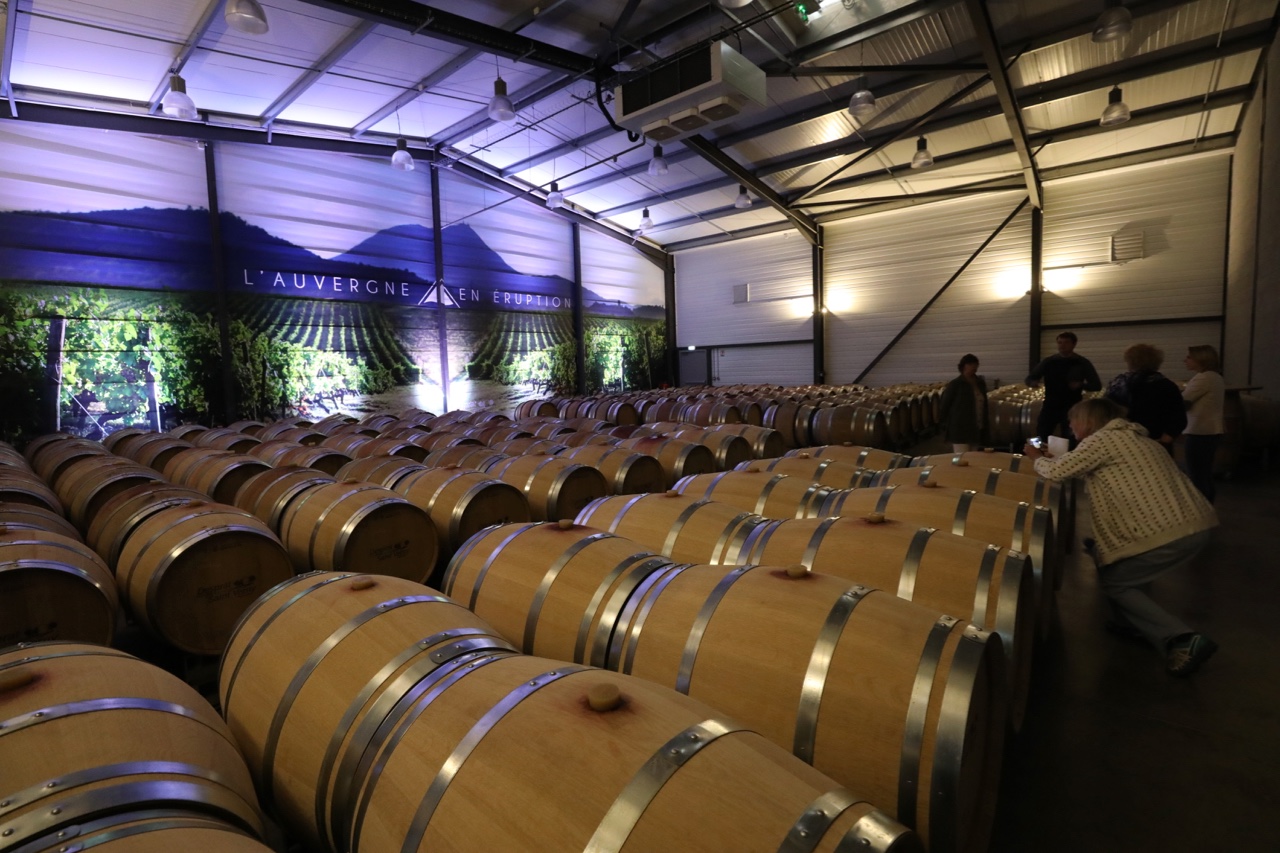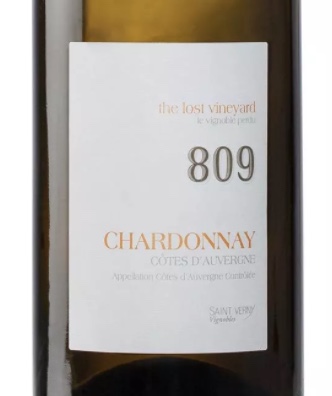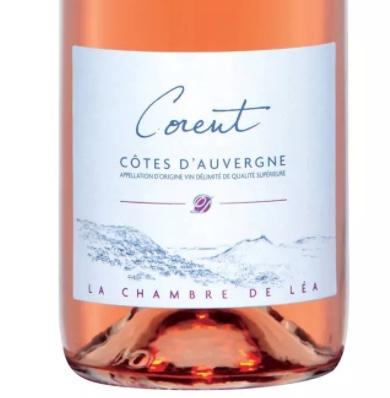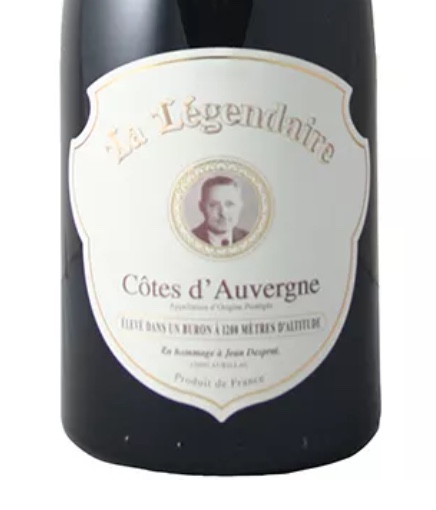Léa Desprat
At the end of June I wrote about our morning getting to know Desprat Saint-Verny with Léa Desprat, now it is time to cover the afternoon activities. However, before I do a mention of an enjoyable lunch at Hostellerie Le Petit Bonneval at 63170 Pérignat lès Sarliève a little to the south of Clermont Ferrand. The dining room is comfortable and spacious with the possibility of eating outside in good weather. Our lunchtime menu was 27€ for three courses.
First course: cured salmon
Our best course
Gilles Vidal and basalt
Gilles Vidal, vigneron and president of the Syndicat AOC des Côtes d'Auvergne
Gilles with a lump of basalt
After lunch we met Gilles Vidal, an associate with Desprat Saint-Verny, in his steeply sloping vineyard at St Georges sur Allier to see a vineyard planted on basalt. Gilles has a layer of clay-limestone above basalt. He explained that Pinot Noir from vines planted on basalt tends to be less peppery than when planted on other volcanic soils. St Georges sur Allier is around 15 kilometres to the south east of Clermont Ferrand, so there is significant pressure on vineyards continuing because of the lucrative demand for land for housing.
Gilles talked about the renaissance of the Côtes d'Auvergne that had started in the 1970s when production was transformed from vin de soif when water would be added to marc (grape residue after fermentation) to make more thin wine to quality wine. Noble grape varieties were planted, yields cut and new equipment purchased. Under AOC Côtes d'Auvergne is maximum is 55 hl/ha and 52 hl/ha for the crus.
Cave de Saint-Verny, Veyre-Monton
After our visit with Gilles Vidal we headed to Veyre-Monton and the Cave de Saint– Verny's winery and shop. The winery has an impressive array of stainless steel, some refurbished old concrete tanks and a new barrel cellar with volcanic overtones. To date there are no fashionable concrete eggs or amphores – something for the future?
Following visiting the winery we had a pretty comprehensive tasting of the extensive range of the Desprat Saint-Verny wines. Overall the range was impressive, which is crucial as Saint-Verny accounts for around 50% of the production of Côte d'Auvergne. If the Saint-Verny range was poor it would really be an uphill task to improve the region's image. There were no poor wines here.
Here are some highlights:
2018 Le Tracteur Bleu, AOC
Le Tracteur Bleu (100% Gamay) is the entry level red and it does exactly what it is supposed to do – a juicy, soft easy drinking red in short a vin des copains.
2017 Les Coutayres (Pinot Gris),
IGP Puy de Dôme
Les Coutayres is a well made, lightly perfumed, quite rich Pinot Gris coming from various parcels.
2019 809 Chardonnay Muscaté, AOC
One of three good Chardonnays we tasted. The 809 has rich concentration and texture with a saline finish.
2019 Corent – La Chambre de Léa AC
(80% Gamay 20% Pinot Noir)
This was yet another good example from Corent – Auvergne cru exclusive for rosé. We were very impressed with the Corents we tasted during our trip and this has been confirmed by subsequently drinking those we bought while in the Auvergne. Direct press giving onion skin this Corent has interest and complexity making it more than just a pleasant rosé for an apéro, so a wine for grilled fish for instance.
2017 348 Gamay, AOC
The 348 Gamay has more concentration and length than Tracteur Bleu but so it should as it is about twice the price. To drink now or keep for another year or so.
2017 La Légendaire, Côtes d'Auvergne
La Légendaire is Saint-Verny's icon wine range. These wines spend six months aging in a buron in Cantal at 1200 metres. The red Légendaire is an equal blend of Gamay and Pinot Noir, which spends 12 moths in barrique before its six month sojourn high up in Cantal. This is an impressive red that can be enjoyed now but may well yet improve further – sweet ripe fruit, slightly smoky aromas and a long finish.
Pierre Desprat and his daughter Léa




